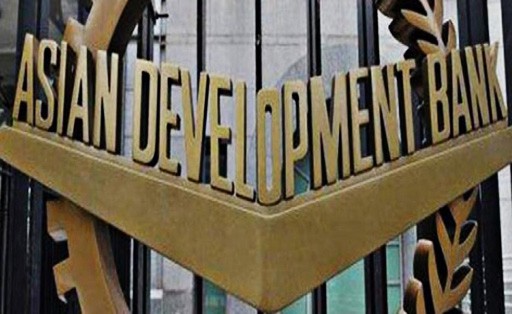Popular Reads
Top Results
Can't find what you're looking for?
View all search resultsPopular Reads
Top Results
Can't find what you're looking for?
View all search resultsOptimism amid regional competition
Japan and China have emerged as prominent actors in shaping the regional governance of financial initiatives.
Change text size
Gift Premium Articles
to Anyone
I
n his opinion piece published by The Jakarta Post on May 18, Rizal Sukma (the Indonesian ambassador to the United Kingdom) expressed his concern over the recent development of political economy in East Asia.
In short, Rizal emphasized two points: the rising of Sino-US strategic rivalry and the impact of the rivalry to ASEAN. Considering the recent development in East Asian financial cooperation, Rizal’s concerns might hold true for several areas of regional cooperation, such as in trade, defense, or investment, but not for financial cooperation.
In terms of power competition, East Asian financial cooperation has been occupied by rivalry between China and Japan. The influence of the US in regional financial cooperation is somewhat scant and mostly indirect.
Perhaps, the US rejection of the establishment of the Asian Monetary Fund (AMF) in 1997 was the last direct US pressure that affected financial cooperation in East Asia, although the key elements of the AMF were eventually adopted as the basic governance of the Chiang Mai Initiative Multilateralization.
In a recent case, the US opposition toward the establishment of the Asian Infrastructure Investment Bank did not stop the participation of the countries in the region in the new multilateral bank.
Indeed, power relations between China and Japan can both facilitate and hinder the development of financial cooperation.
From a pessimistic point of view, the rivalry between Japan and China would potentially hinder the ability of other countries in the region, especially ASEAN members, to reap maximum benefits from financial cooperation.
In fact, the rivalry has decelerated the progress of several financial initiatives, but never terminated them.
In contrast, power relations between Japan and China have expedited East Asian financial cooperation. Japan and China have emerged as prominent actors in shaping the regional governance of financial initiatives.
They have provided impetus for closer regional arrangements that are not only beneficial for the region to develop its own capacity, but also to limit the unpredictable actions of the great powers.
We learn from the past that the absence of regional cohesiveness between East Asian countries has resulted in an inability to control the unexpected reaction of the Western countries during the Asian financial crisis.
Put simply, the longstanding political and economic competition between Tokyo and Beijing has predominantly affected the progress and governance of East Asian financial cooperation.
We should realize that most East Asian states are at the development stage regarding their economies. Some of them remain fragile over economic shocks and even have underdeveloped capital markets. Countries like Cambodia, Laos and Myanmar are just starting to develop their stock markets. At the same time, some member countries need to enhance their financial regulations.
For many Southeast Asian countries, Japan and China have become sources of support for financial development, especially through Japan’s provision of financial and technical assistance.
In financial cooperation, Japan and China’s support for the development of regional initiatives for safety nets and bond markets show their strong commitments, which remain positive for the region.
In this regard, ASEAN remains the main beneficiary of the East Asian financial cooperation.
In fact, East Asian countries work closely in monitoring financial development in the region.
In their latest joint statement, the ASEAN Plus Three finance ministers stated that they would collaborate on maintaining macroeconomic and structural policy actions to reduce policy uncertainty, minimalize risks and promote transparency.
In more practical issues, they announced they would continuously work on the operational elements of a regional financial safety net, set up a new road map for a bond market initiative and convert the regional economic surveillance unit into an international organization.
These developments reflect how the East Asian financial cooperation is progressing within the dynamics of regional power rivalry.
However, the encouraging progress of East Asian financial cooperation does not mean success comes without challenges. In this context, I share Sukma’s concern about ASEAN’s unity when it comes to the regional arrangements that involve regional powers.
ASEAN’s unity will potentially be challenged by the national interests of each ASEAN member country, especially when talking about financial issues.
Finance remains a sensitive issue for many ASEAN governments as it includes economic interests and regulatory systems. Creating common objectives and activities through regional cooperation can be problematic for ASEAN countries, as these should encompass various domestic targets, regulations and expectations.
Domestic political-economic conditions eventually determine the level of ASEAN states’ engagement in regional financial cooperation.
Simply put, the biggest challenge for ASEAN as a bloc in regional financial cooperation is within ASEAN itself, which is to reap benefits from the cooperation while preserving its unity.
Maintaining a strategic position within a power competition is not an easy task. So far, ASEAN has played an appropriate role to deal with power rivalry in East Asian financial cooperation. Parallel with this, ASEAN should develop its own strengths and commitments to anticipate any unexpected reaction from regional powers.
***
The writer works for the Finance Ministry’s Fiscal Policy Agency. The opinions expressed are his own.
---------------
We are looking for information, opinions, and in-depth analysis from experts or scholars in a variety of fields. We choose articles based on facts or opinions about general news, as well as quality analysis and commentary about Indonesia or international events. Send your piece to community@jakpost.com.










